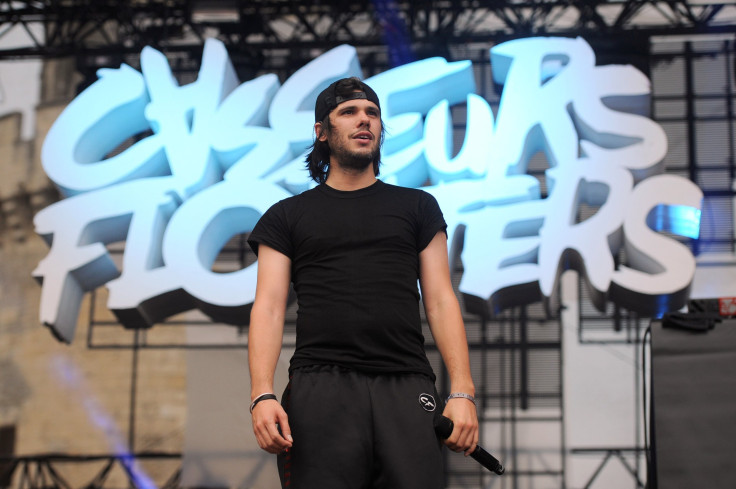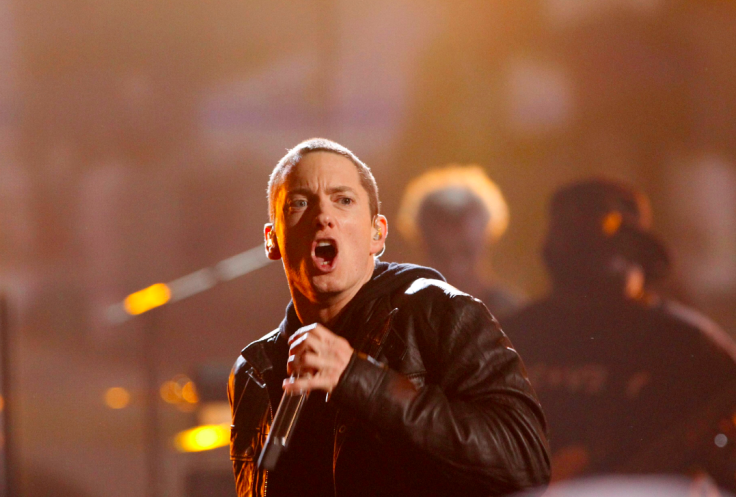Freedom Of Expression Controversy France: Rapper Orelsan Sexism Trial Echoes Public Outcry Over Rick Ross, Eminem

While U.S. rappers like Eminem and Rick Ross have frequently found themselves embroiled in controversy about lyrics that members of the public have construed as misogynistic, a French law criminalizes such speech, making everyone from musicians to politicians potentially subject to prosecution for “inciting hatred and violence against women.” In an ongoing debate over the limits of freedom of speech, the case against French rapper Orelsan concluded Thursday in an appeals court in Versailles, south of Paris, with the release of the musician.
The 33-year-old Orelsan, born Aurélien Cotentin, was summoned to a French court this year for the third time, accused of “inciting violence against women” through lyrics he rapped during a 2009 performance. Cotentin appeared in appeals court Thursday after having been convicted on the charge and ordered to pay a fine of 1,000 euros, along with a symbolic 1 euro fine to each of the five feminist groups who brought the case against him in 2009.
Some of the lyrics included in the case featured rhymes loosely translated as, "You should read up on bandages and strollers, I'm could impregnate you and break your nose on a whim," and, “shut your mouth, or I’ll do you like Marie Trintignant.” Marie Trintignant was a French actress who was beaten into a coma by her rock star boyfriend and died of her injuries in 2003.
The case sparked controversy in France, where freedom of speech is at once highly valued and frequently litigated. The law under which Cotentin is being prosecuted effectively makes hate speech a crime. It includes protections for racial and ethnic minorities and has been frequently used to regulate cases of anti-Semitism and anti-Islamic acts.

Satirical weekly Charlie Hebdo, a magazine that first rose to international prominence in January 2015 following a terror attack that left 12 people dead, is known for its controversial cartoons that have featured the prophet Mohammed, the pope and others. Charlie Hebdo was similarly prosecuted and acquitted in 2007 for a series of cartoons of Mohammed that Muslim groups claimed were racist.
Cotentin defended his actions at the 2009 concert, arguing that the lyrics were part of an artistic oeuvre and a persona separate from himself. The court, having overturned his conviction in 2014 and ordered a new trial, acquitted him Thursday.
While rapping about rape is not a criminal act in the U.S., some activists have long argued that musicians and other prominent figures can encourage, or at the very least, condone violence against women. Rick Ross found himself at the center of controversy in 2013 with lyrics that appeared to condone date rape. “Put molly all up in her Champagne, she ain't even know it, I took her home and I enjoyed that, she ain't even know it,” rapped Ross in rapper Rocko's song, "U.E.O.N.O." After backlash from activists and fans alike and the dissolution of his contract with Reebok, Ross apologized.

Detroit rapper Eminem came under fire for his part in a 2015 Dr. Dre album in which he raps explicitly about raping women using expletive-laced language. Eminem was similarly slammed by critics who accused the 43-year-old rapper of being a rape apologist.
"Peddling the lie that orgasm equals consent silences victims of sexual violence,” Karen Ingala Smith, chief executive of the Nia Project, a charity that fights violence against women and children, told the Guardian. "When we minimize, celebrate, glorify or condone men’s violence against women, we are amplifying the conditions in which it can occur," she said.
© Copyright IBTimes 2024. All rights reserved.





















